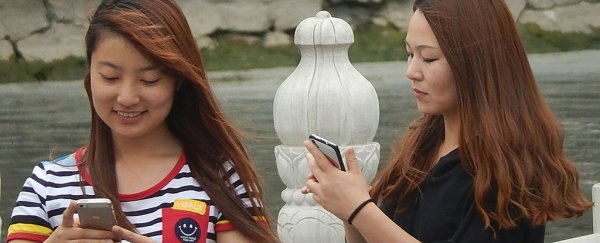There's some bad news for those of you who enjoy a quick check of the Facebook and Twitter feeds before bed. A new study has found that young people who use social media more often are also more likely to suffer from disturbed sleep patterns.
"This is one of the first pieces of evidence that social media use really can impact your sleep," said lead author Jessica C. Levenson, from the University of Pittsburgh. "And it uniquely examines the association between social media use and sleep among young adults who are, arguably, the first generation to grow up with social media."
Researchers looked at the habits of 1,788 American young adults between the ages of 19 and 32. The participants were given questionnaires to establish social networking habits, while sleep patterns were measured for the same period of time. Those who checked into social media most frequently were three times as likely to experience disturbed sleep than those who checked least frequently, plus those who spent the most total time on social networks during the day had twice the risk of sleep disturbance compared to peers who spent less time on these sites and apps.
What the researchers aren't sure of is whether this increased use of social media causes more sleep problems, or whether disturbed sleep patterns then cause people to spend more time on social networks - or both at the same time. They suggest that bright light emitted from electronic devices, "emotional, cognitive or physiological arousal" from interacting on social media, and late nights spent posting updates could all be contributing to the link.
One way the new data could be used is to help assess patients who are reporting sleep problems, and it looks like constantly checking for updates is more harmful than simply spending a lot of time on a social network. "[The findings] may indicate that frequency of social media visits is a better predictor of sleep difficulty than overall time spent on social media," said Levenson. "If this is the case, then interventions that counter obsessive 'checking' behavior may be most effective."
If you want to compare your own social media habits with those involved in the study, participants spent an average of 61 minutes per day on social networks and visited their various accounts an average of 30 times per week. Activity on Facebook, YouTube, Twitter, Google Plus, Instagram, Snapchat, Reddit, Tumblr, Pinterest, Vine, and LinkedIn was monitored, and overall, nearly 30 percent of those who took part reported "high levels" of sleep disturbance.
The team now wants to see more research done to investigate whether late-night social networking is causing bad sleeping patterns or the other way around, or whether something else is causing the link entirely.
The study has been published in the journal Preventive Medicine.
